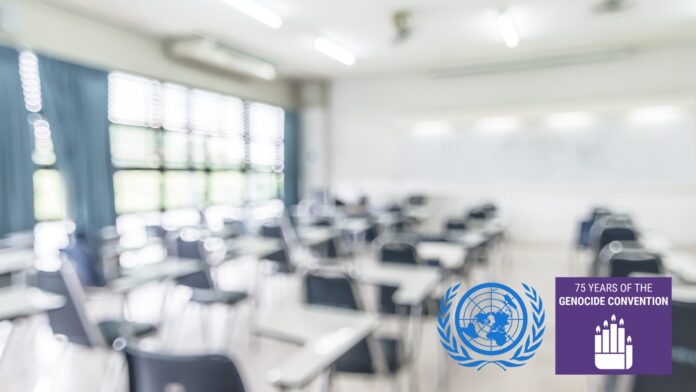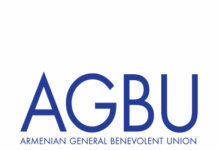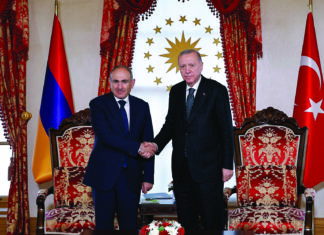TORONTO — December 10 marks the 75th Anniversary of the 1948 Universal Declaration of Human Rights and the Convention on the Prevention and Punishment of the Crime of Genocide. For the past 75 years, these United Nations principles have provided the international community with a set of standards and legal mechanisms designed to protect the rights and dignity of individuals, and to condemn, punish, and prevent acts of genocidal violence against groups of people based on their nationality, ethnicity, race, and/or religion.
Tragically, this year has been marked by great atrocity, pain, and suffering world-wide. We have witnessed the continuation of the war in Ukraine, the blockade of the Lachin Corridor and the ethnic cleansing of Nagorno-Karabakh, the escalation of conflict in Darfur and Myanmar, and the renewal of extreme violence between Israelis and Palestinians, just to name a few. The standards of the Human Rights Declaration and the Genocide Convention are being directly challenged. Much of this is due to the lack of accountability and the failure of the international community to effectively condemn, prevent, and intervene in such crimes.
Dr. Henry Theriault, co-editor of the Zoryan Institute’s academic journal, Genocide Studies International, states: “This year we have seen a further acceleration of mass violence as more and more powerful leaders ignore basic human rights norms and law and some even mock it. While certain cases have received significant media and policy attention, these are just the tip of the iceberg. The dream of the Universal Declaration of Human Rights and UN Genocide Convention has become a nightmare of rape, torture, killing, and brutal expulsion…”
For the past 41 years, the Zoryan Institute has served as a global human rights leader. As we look forward and reflect on the meaning and impact of these events, it is clear that the importance of our work is more urgent and relevant than ever before. We believe that the Zoryan Institute functions both as a mirror and as a lamp in striving to educate audiences by making visible the traumatic realities of genocide and mass atrocity through scholarship and outreach that illuminates the path towards peace and justice. The Institute will continue to serve as a sought-after hub where scholars, international students, researchers, and activists seek quality research, informed scholarship, and academic programming to better understand and make sense of the atrocities happening around us we work to build a more human rights-respecting global order.
Theriault concludes by stating: “…There is no time to waste: every person committed to human rights and the survival of marginalized groups around the globe must join together to reverse this global trend and create a world in which people can live with dignity and security. Zoryan’s public commitment is a model for what is needed.”








